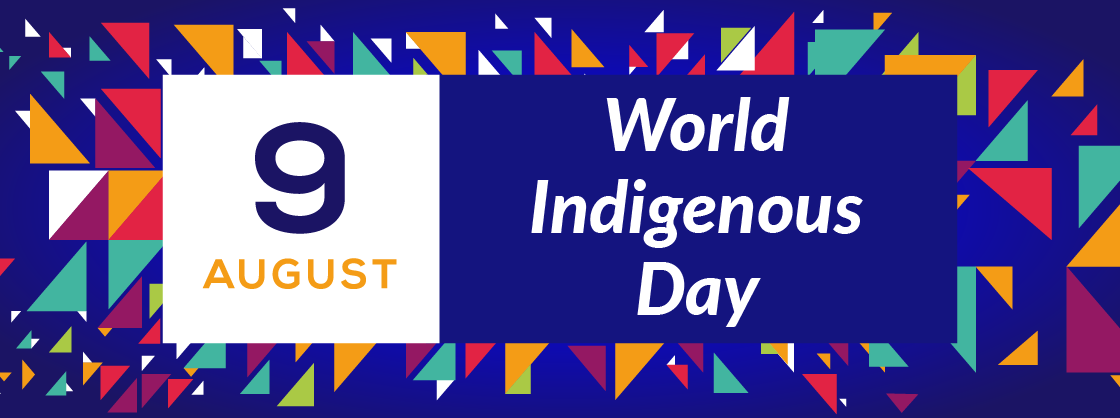World Indigenous Day 2025: Meaning, Significance, Theme & more
Table of Contents
Indigenous peoples are the custodians of humanity’s cultural heritage, holding deep-rooted traditions, languages, and knowledge systems that have been passed down for generations. They are guardians of biodiversity, living in harmony with nature and preserving the Earth’s delicate ecological balance.
On August 9, 2025, the world will once again unite to observe World Indigenous Day, a day dedicated to honoring the resilience, contributions, and rights of indigenous communities worldwide. This occasion is not just about celebration; it is a call to action to ensure the protection of indigenous rights, lands, and traditions in the face of modern challenges.
World Indigenous Day Theme for 2025
Every year, World Indigenous Day highlights a theme that reflects urgent indigenous issues and the global agenda for their empowerment. The 2025 theme—“Indigenous Peoples’ Right to Self-Determination: A Pathway for Food Security and Sovereignty”—emphasizes on:
- The right of indigenous communities to govern their own lands and resources without external interference.
- The importance of traditional agricultural practices and their role in ensuring food security and environmental sustainability.
- Recognizing indigenous knowledge systems as valuable assets for addressing global hunger, biodiversity conservation, and climate resilience.
Why This Theme Matters in 2025
The global food crisis, deforestation, and climate change disproportionately affect indigenous communities, many of whom rely on subsistence farming, fishing, and hunting for survival. Self-determination allows indigenous peoples to:
- Protect their lands from exploitation and destructive development.
- Preserve their agricultural techniques, such as agroforestry and rotational farming, which contribute to sustainable food production.
- Ensure food sovereignty, meaning they have the power to control their own food systems rather than depend on external aid.
History of World Indigenous Day
The establishment of World Indigenous Day was a landmark achievement in global human rights advocacy. Recognizing the historical injustices, oppression, and struggles of indigenous communities, the United Nations General Assembly declared August 9th as a day of observance and action. Below are the key historical milestones of World Indigenous Day:
| Year | Event |
| 1982 | The UN Working Group on Indigenous Populations held its first meeting to discuss indigenous rights and concerns. |
| 1993 | The United Nations declared the International Year of the World’s Indigenous Peoples, bringing global attention to indigenous struggles. |
| December 23, 1994 | The UN General Assembly officially proclaimed August 9 as International Day of the World’s Indigenous Peoples. |
| 1995 | The first-ever World Indigenous Day was celebrated, marking the beginning of annual observances. |
| 2007 | The UN adopted the Declaration on the Rights of Indigenous Peoples (UNDRIP), a landmark agreement affirming indigenous self-determination, land rights, and cultural preservation. |
| 2025 | The focus shifts towards indigenous self-determination for food security and sovereignty, acknowledging their crucial role in sustainable agriculture and biodiversity conservation. |
Purpose of World Indigenous Day
World Indigenous Day serves as a global platform to highlight the struggles, rights, and achievements of indigenous communities worldwide. It is a call to action for governments, organizations, and individuals to acknowledge, support, and preserve indigenous identities in a rapidly changing world. Following are the key objectives of World Indigenous Day:
- Raising Awareness: Educating the world about indigenous cultures, traditions, languages, and historical injustices. And highlighting the challenges indigenous communities face, including social exclusion, loss of ancestral lands, and environmental threats.
- Promoting Rights & Advocacy: Pushing for legal frameworks that recognize indigenous land ownership, self-governance, and cultural preservation while supporting indigenous representation in politics, media, and decision-making bodies.
- Celebrating Contributions: Acknowledging indigenous contributions to global heritage, medicine, environmental conservation, and traditional knowledge systems by showcasing indigenous music, literature, arts, cuisine, and sustainable practices.
- Encouraging Global Collaboration: Partnering with NGOs, governments, and institutions to provide economic, educational, and healthcare support to indigenous populations.
Global Initiatives and Activities for World Indigenous Day
On World Indigenous Day 2025, countries, organizations, and educational institutions worldwide will take part in various initiatives and awareness campaigns to uplift and support indigenous communities. Below are some of the global initiatives for World Indigenous Day:
| Initiative | Description |
| Educational Workshops | Sessions on indigenous history, languages, and traditional knowledge to foster respect and awareness. Topics include biodiversity conservation, ancient agricultural techniques, and indigenous philosophy. |
| Community Engagement | Encouraging volunteering and participation in indigenous-led projects, including reforestation, community tourism, and cultural heritage preservation. |
| Policy Discussions | High-level forums, summits, and UN panels discussing indigenous land rights, climate change, legal frameworks, and representation in governance. |
| Creative Initiatives | Art exhibitions, cultural performances, storytelling events, and film screenings showcasing indigenous heritage, myths, and contemporary struggles. |
| Sports & Recreation | Organizing traditional sports tournaments, including archery, canoe races, and stickball, promoting physical fitness and cultural pride. |
| Mentorship Programs | Pairing indigenous youth with elders and community leaders to pass down traditions, survival skills, and ancestral wisdom. |
| Fundraising & Economic Support | Hosting charity drives, crowdfunding campaigns, and fair-trade initiatives to support indigenous education, healthcare, and business ventures. |
World Indigenous Day University Celebrations
Universities play a pivotal role in recognizing and supporting indigenous cultures by providing platforms for representation, discussion, and cultural exchange. On World Indigenous Day 2025, top universities worldwide are organizing events, discussions, and initiatives to educate students and the broader community about indigenous heritage, rights, and contributions. These institutions are committed to advancing indigenous studies, fostering collaboration with indigenous communities, and promoting equity in academia. Below are the University-Led Initiatives for World Indigenous Day 2025
| University | Key Initiatives | Description |
| University of Kansas | Promotion of Arts | Establishing spaces for indigenous artists to showcase paintings, sculptures, and crafts, along with live performances and interactive art sessions. |
| Heritage Programs | Hosting traditional storytelling, music, and dance performances by indigenous community members, ensuring their voices and history are preserved and celebrated. | |
| Northwestern University | Learning About Flora and Fauna | Guided nature walks and ecological workshops led by indigenous experts, teaching students about sacred plants, medicinal herbs, and sustainable land practices. |
| University of Oxford | Workshops & Panel Discussions | Expert-led discussions on indigenous rights, sovereignty, climate change, and cultural preservation to educate students and policymakers. |
| Film Screenings | Hosting documentary screenings and Q&A sessions on the history, struggles, and resilience of indigenous communities across the world. | |
| University of Edinburgh | Cultural Showcases | Highlighting indigenous heritage through exhibitions, fashion shows, craft markets, and performing arts, fostering deeper appreciation and support for indigenous traditions. |
Conclusion
As we observe World Indigenous Day 2025, it’s imperative to approach celebrations with respect and a genuine desire to understand and honor indigenous cultures. By participating in these initiatives and educating ourselves, we contribute to a world that values diversity, promotes equity, and acknowledges the profound wisdom indigenous communities offer. Let’s stand in solidarity with indigenous peoples, ensuring their voices are heard, their rights protected, and their cultures celebrated.
Frequently Asked Questions
What is the importance of Indigenous symbol?
They play a huge part in the lives of the community as they preserve the traditions and culture.
Is indigenous day a national holiday?
It is not a federal holiday.
What is the international day of world indigenous peoples?
This is the day where we all are reminded about the community and the role they play in our lives and on this earth.







